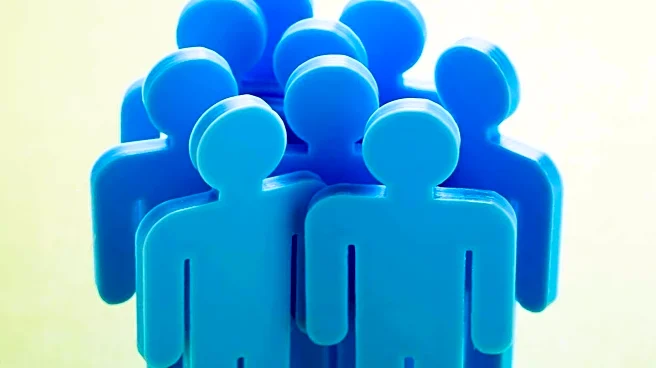What is the story about?
What's Happening?
Collective effervescence, a term coined by sociologist Émile Durkheim, describes the powerful emotional experience individuals feel when participating in group events such as concerts, protests, or sporting events. This phenomenon fosters a sense of connection and unity among participants, transcending individual experiences. Experts like Shira Gabriel, a psychology professor at SUNY University at Buffalo, emphasize the importance of these experiences in creating social bonds and emotional energy. Collective effervescence can lead to positive outcomes such as increased feelings of belonging, emotional energy, and a sense of morality. Despite potential downsides, such as negative group behavior, the overall impact is seen as beneficial for individuals and society.
Why It's Important?
The concept of collective effervescence is significant as it highlights the human need for social connection and belonging. In a world where isolation and loneliness are prevalent, these shared experiences can enhance mental well-being and foster community solidarity. The positive effects include reduced symptoms of anxiety and depression, increased charitable behavior, and a sense of spirituality. However, there are rare instances where collective effervescence can lead to negative outcomes, such as group violence or extremism. Understanding this phenomenon can help individuals seek out positive communal experiences that contribute to their well-being and societal harmony.
What's Next?
Individuals are encouraged to seek out opportunities for collective effervescence by attending events that align with their interests, such as concerts, sports matches, or festivals. Experts suggest that these experiences can be tailored to personal preferences, ensuring that individuals find the right fit for their social needs. As society continues to grapple with issues of loneliness and isolation, fostering environments that promote collective effervescence could become a focus for community organizers and mental health professionals.
Beyond the Headlines
Collective effervescence also raises questions about the ethical implications of group behavior and the potential for negative outcomes. While most group experiences are positive, the phenomenon can sometimes lead to actions that individuals might not engage in alone. This underscores the importance of understanding the dynamics of group psychology and the factors that can influence behavior in collective settings.















